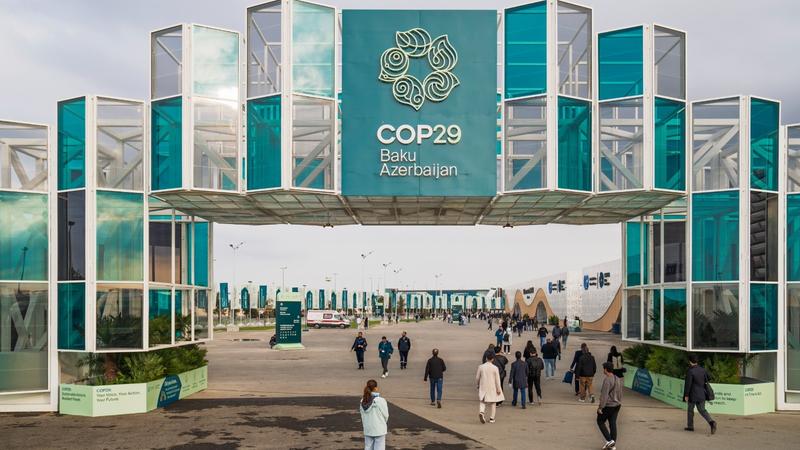Published 18:38 IST, November 18th 2024
'Remove barriers...' - India Urges Developed Nations At COP29 | Top Developments
The United Nations Climate Change Conference 2024, is being held in Baku (Azerbaijan) from November 11-22.

Baku: The United Nations Climate Change Conference 2024, held in Baku (Azerbaijan) from November 11-22, intends on garnering the support of developing countries to accelerate the transition to clean energy and deal with the impacts of climate change.
Nandan Urges For Contribution From Developed Nations
At the conference, the Indian environment secretary, Leena Nandan, on Monday urged developed countries to remove barriers in transferring technology, increasing public climate finance and avoiding unfair trade measures disguised as climate actions. She further emphasised on the need for rich nations in cutting emissions and achieving net-zero by 2030.
This happened during a ministerial roundtable on pre-2030 ambition at the UN climate talks in Baku. Leena Nandan also added that innovative technologies, critical for a low carbon future must be made accessible to developing countries.
Cleaner energy solutions are the need of the hour but Leena Nandan pointed out that barriers like intellectual property make access to these difficult.
A need to come up with affordable, relevant and accessible technology was established for a stronger and sustainable future.
India also asked developed countries to close the massive finance gap delaying climate action in developing countries.
"Trillions of dollars are needed for clean energy projects, disaster-resilient infrastructure, and climate adaptation... It should be ensured that that deviation from least-cost development pathways committed by developing countries are fully met though public finance by developed countries. Not doing so puts additional cost on people in developing countries bearing a disproportionate burden of climate change without having caused the problem," Nandan said.
Nandan, on behalf of India also raised strong objections to unilateral trade measure like the European Union's Carbon border Adjustment Mechanism (CBAM), which conveniently shifts the cost of climate action to poorer nations, not accounting for the damage caused by developed nations. This further hurts international cooperation, adding financial burden to developing countries.
In October, Finance Minister Nirmala Sitharaman termed CBAM "unilateral and arbitrary" adding that such measures could potentially harm Indian industries and disrupt the balance of international trade.
CBAM will impose an additional 25% tax on carbon-intensive goods exported from India to the European Union (EU), according to Centre for Science and Environment.
Stiell Urges Delegates To Shed Bluffing And Brinkmanship
The United Nations framework Convention on Climate Change Simon Stiell also called for swift resolution of less contentious issues and an urgent focus on major political decisions to advance global climate action. He urged delegates to shed "bluffing and brinkmanship" to focus on pragmatic solutions that can overcome critical challenges.
Stiell urged the need for collaborative progress during the plenary session amongst all the attendees.
"We can't lose sight of the forest because we're tussling over individual trees," he said, warning against stalling tactics where partis refuse to take initiative and act unless others take the lead. He explained that such an approach could halt the progress entirely. He also said that only parallel efforts from all parties could ensure robust income.
The tussle between the developed and the developing nations on key issues such as climate finance, trade measures, and equitable responsibility for climate action is likely to end in the second week of COP29.
Recently, India representing the G-77/China and BASIC blocs asked developed countries to be accountable for unmet financial commitments.
The G-77/China bloc reiterated its demand for $1.3 trillion annually for climate finance and emphasised the need for grants as well as concessional funding to avoid burdening vulnerable economies that are already struggling with the repercussions of climate change.
Stiell also called upon G20 nations to take bolder action and warned that without it, none of the grouping's economies would escape climate-driven economic losses.
(With PTI inputs)
Updated 18:38 IST, November 18th 2024